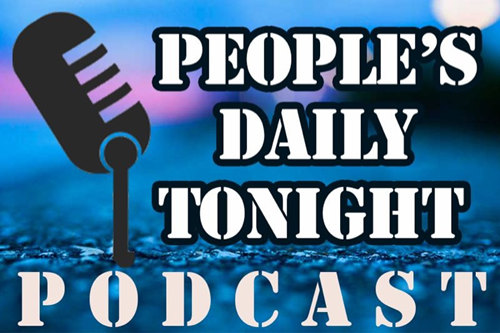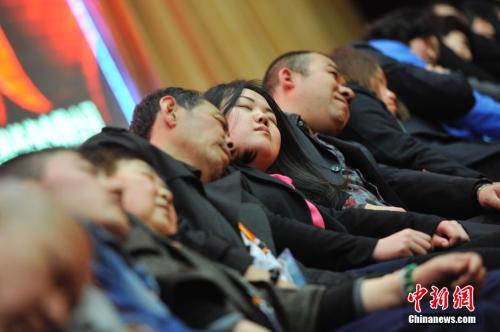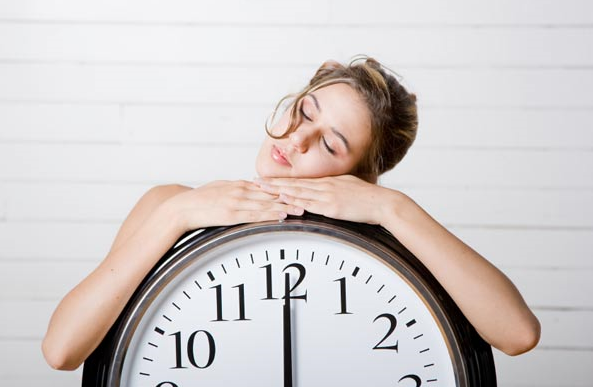
This is People's Daily Tonight.
50-60 million Chinese troubled by sleep disorder: reports
Have you ever been troubled by sleep disorder?
About 50 to 60 million Chinese are troubled by sleep disorders, and less than 2 percent receive treatment, this is according to a report on Chinese people's sleep quality issued on Mar. 17, just four days ahead of this year's World Sleep Day.
The report said that 56 percent of Chinese internet users think they have sleep issues, such as few dreams and light sleep.
According to Han Fang, chairman of the Chinese Sleep Research Society, there are only 5.8 beds available for every one million Chinese with sleep disorders in China’s more than 2,000 sleep clinics.

People enter a deep state of relaxation to release stress while under the guidance of professional hypnotists in Taiyuan, North China's Shanxi province, March 21, 2018. (Photo/Chinanews.com)
“China lacks sleep specialists, while the US has thousands of Registered Sleep Technologists,” Han noted.
People born in the 1990s accounted for over 60 percent of the group troubled by sleep issues, making the largest contribution to online consumption of sleep aids. Blindfolds, earplugs and foot pads were the top 3 most popular sleep aid products among Chinese consumers in 2017.
Sleep disorders may cause dementia, which would further trigger the Alzheimer's disease, said Ye Jingying, director of the Chinese Medical Doctor Association Sleep Medicine Specialized Committee. Adding sufficient sleep will protect the brain and reduce the risks of developing the Alzheimer's disease, she said.
Young people in Beijing sleep the shortest time, which is less than 7 hours per day, due to high work pressure. Furthermore, employees in finance and service industries, as well as government officials have the worst sleep quality, according to the reports.
Almost 90 percent of Chinese internet users use their smart phones before sleep, spending an average of 65 minutes. Meanwhile, 58 percent of the people born after 1995 may even spend 80 minutes.

(File photo)
Experts said that the blue rays emitted by devices such as cell phones and computers will increase people's level of alertness and excitability. Using cell phones before bed will reduce the time of rapid eye movement (REM) sleep which is a key process of mental recovery.
They suggested that people maintain a healthy routine and never stay up to guarantee enough sleep time.
(Produced by Ni Tao and Shan Xin)


